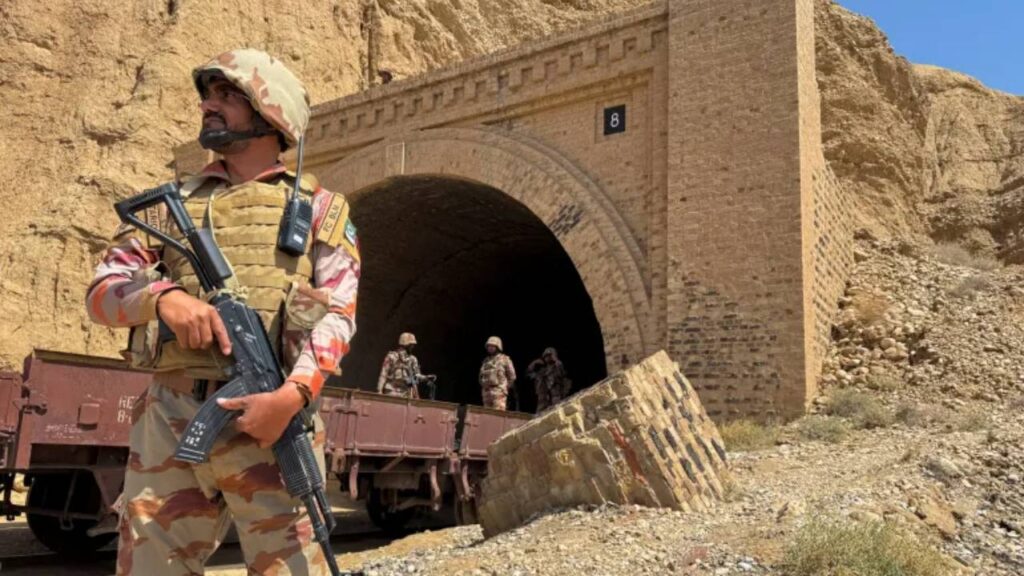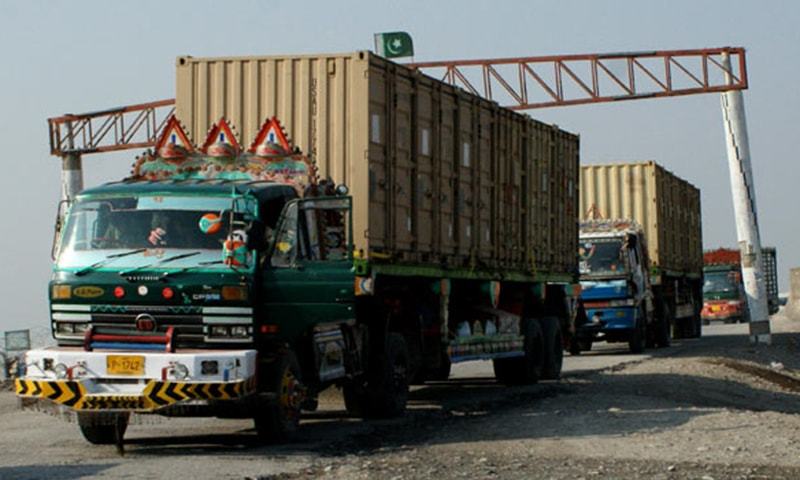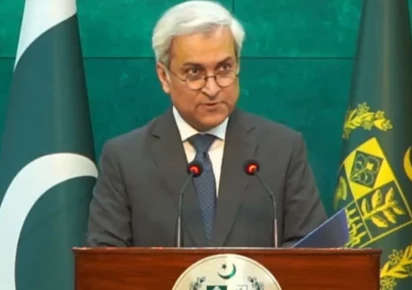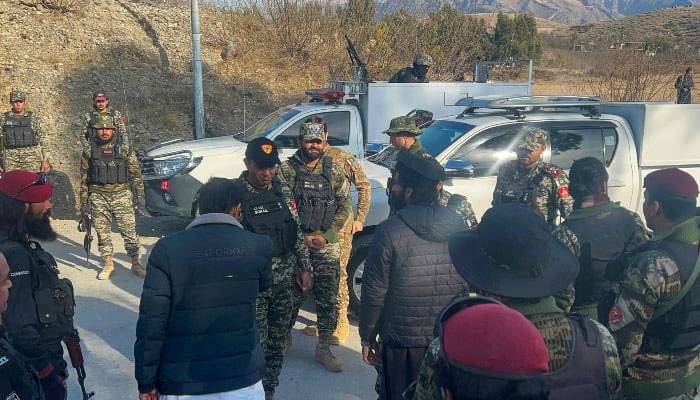On the hot, windless morning of May 1, 2025, armed men from the Baloch Liberation Army’s Jeeyand faction stood across a dusty road near Dhadar, their vehicles blocking the only route through the Bolan Pass. The fighters waved away confused drivers, their rifles slung but ready. For hours, traffic stood still under the harsh sun. To the BLA(J), this was another move in what they call “Operation Darra-e-Bolan”—a show of force in a province they consider under occupation.
Three months later and thousands of miles away, the air in Washington, D.C., was cool and still as a State Department statement landed in reporters’ inboxes. On August 11, 2025, the United States announced it had formally designated the Majeed Fidayeen Brigade—the BLA’s suicide unit—as a Foreign Terrorist Organization. The move, coordinated with the U.S. Treasury Department’s Office of Foreign Assets Control, blocked any property or financial interests under U.S. jurisdiction, criminalized material support, and sent a clear diplomatic signal to Islamabad and beyond.
It was a decision years in the making—and one shaped, in part, by the violence of the past few months in Balochistan.
The Majeed Brigade’s reputation inside militant circles is almost mythical. Formed around 2011, it operates as the BLA’s “tip of the spear” trained for high-risk suicide and fidayeen assaults. Its past targets have included Pakistani military installations, Chinese nationals linked to the China-Pakistan Economic Corridor, and senior officials. In U.S. eyes, the unit represents the most lethal face of the BLA insurgency.
Between May and July 2025, the Jeeyand faction claimed eighty-seven attacks across Balochistan according to Islamabad-based think tank The Khorasan Diary. In May, thirty-two attacks included the assault on Surab city on May 30, during which an Additional Deputy Commissioner was killed. Weeks earlier, the group had issued an unprecedented public appeal to India for support, vowing to strike Pakistan from its western border if New Delhi acted. June brought thirty-one more attacks, the most significant being the targeted killing of Atta Ur Rehman Mengal on June 23 in Khuzdar district, which the group’s intelligence wing and operational unit claimed jointly. July saw a relative decline to twenty-four attacks but not in ambition, with a roadside bomb in Quetta on July 19 targeting a Pakistan Army officer of Major rank.
These operations unfolded against the backdrop of a deepening rivalry between the BLA and the Islamic State’s Khorasan Province branch. The feud intensified in late May when ISKP threatened to attack Baloch public gatherings in retaliation for the killing of its members in Mastung.
The U.S. designation process is deliberate and tightly bound by law. The Secretary of State must determine that the organization is foreign, that it engages in terrorist activity or retains the capability and intent to do so, and that such activity threatens the security of U.S. nationals or the national security of the United States. The Majeed Brigade met each of these thresholds. Operating from Balochistan with no legal presence in the U.S., it clearly qualified as a foreign entity. Its record of suicide and armed attacks was documented not only by Pakistani authorities but also by independent monitors and media outlets. Saadullah Akhter, who reports on the intersections of human security, conflict, and community in Pakistan believes that on the surface, this appears to be a success of Pakistan’s foreign policy. However, what the U.S. might expect from Pakistan in return is unclear yet.
The recent surge in violence underscored why the designation gained urgency. Public calls for foreign intervention, high-profile assassinations, and the Quetta bombing all signaled an operational tempo with the potential to destabilize the region beyond Pakistan’s borders.
On paper, the consequences of the designation are immediate: assets under U.S. jurisdiction are frozen, members face travel bans and visa revocations, and providing material support becomes a federal crime. In practice, the effect on the Majeed Brigade’s operational strength is less predictable.
Zia Ur Rehman, a journalist and researcher specializing in security issues, emphasized that the designation opens avenues for enhanced counterterrorism cooperation between the United States and Pakistan, as well as with China, which has endured sustained attacks from the BLA and its Majeed Brigade.
For Washington, the dusty roadblocks of Bolan in May were more than a distant skirmish; they were part of the chain of events that made the August designation not just symbolic, but inevitable.
Stringent measures can disrupt funding, limit mobility, and complicate external coordination. But history shows they rarely dismantle insurgent capacity overnight. Some groups adapt quickly, shifting to alternative funding channels, decentralizing operations, or escalating attacks to signal defiance. For the Majeed Brigade, the risk is that international isolation could push it further underground—and make it harder to track.
For Pakistan, the designation is both an endorsement and a test. It validates Islamabad’s longstanding position that the BLA is a serious security threat, but it also raises expectations for rapid, visible action against a group now branded globally as a terrorist outfit.
That pressure comes with risks. Security forces will have to prepare for the possibility that the Majeed Brigade could respond with deadlier tactics or intensify its feud with ISKP, heightening civilian vulnerability in Balochistan. At the same time, any misstep whether in the form of heavy-handed crackdowns or intelligence failures, could undermine the diplomatic momentum generated by Washington’s decision.
Whether the designation will weaken the Majeed Brigade remains uncertain. Its fighters have weathered military offensives, internal splits, and international condemnation before. This new label may constrain their options, but it could also sharpen their resolve. According to Saadullah Akhter said this decision will certainly be a cause for concern for the BLA’s Majeed Brigade because this group had support not only in Balochistan but also internationally. The difficulties will increase, but just as in the case of the TTP, clashes between the security forces and the BLA’s Majeed Brigade will continue, and this terrorist organization’s attacks will persist.
For Islamabad, the challenge is to turn this development into tangible security gains without provoking the kind of backlash that strengthens the very threat it seeks to dismantle. In the long shadow between Bolan’s dusty roads and Washington’s polished corridors, the question lingers: has the world’s newest terror listing struck a decisive blow — or simply redrawn the battlefield?







